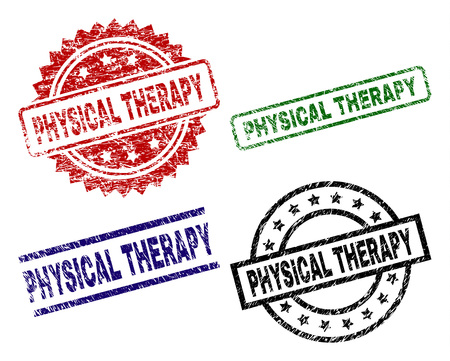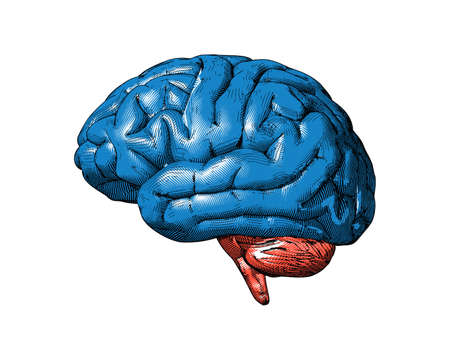Introduction to Pain Management in Older Adults
Pain is a common yet often underestimated concern among older adults in the UK. As the population ages, the prevalence of persistent pain increases, with studies suggesting that nearly half of those over 65 experience some degree of chronic pain. This discomfort can stem from a range of conditions, including arthritis, neuropathies, and musculoskeletal disorders, all of which may significantly impact quality of life. For many older individuals, pain is not only a physical sensation but also influences mood, sleep, mobility, and social participation. The unique challenges faced by older adults—such as the presence of multiple long-term health conditions (multimorbidity), age-related physiological changes, and increased sensitivity to medications—require a nuanced approach to pain management. In the UK context, where access to healthcare services and support networks varies regionally, it becomes even more vital to adopt comprehensive strategies that address both physical and psychological aspects of pain. Recognising these complexities helps healthcare professionals deliver person-centred care that respects the dignity and individual needs of older patients.
Physical Approaches: From Physiotherapy to Movement
Effective pain management in older adults often begins with evidence-based physical interventions tailored to individual needs and preferences. These approaches are designed to enhance mobility, reduce discomfort, and promote independence, recognising the unique physiological changes that occur with ageing. Below, we examine some of the key physical strategies commonly recommended by UK healthcare professionals.
Physiotherapy
Physiotherapists play a central role in assessing and treating pain related to musculoskeletal conditions, arthritis, and post-surgical recovery. Interventions may include manual therapy, therapeutic exercises, and education on posture and body mechanics. Treatment plans are typically personalised to address both acute and chronic pain while accommodating any co-existing health conditions.
Gentle Exercise Programmes
Regular movement is vital for managing pain and maintaining function in later life. Gentle exercise programmes—such as chair-based routines, tai chi, or water aerobics—are particularly suitable for older adults as they minimise strain while improving flexibility, strength, and balance. These group activities also foster social interaction, which can positively influence mental wellbeing.
Mobility Aids
For those experiencing significant limitations in movement or stability, a range of mobility aids is available. Proper assessment ensures that devices such as walking sticks, rollators, or orthopaedic footwear are matched appropriately to the individuals requirements, thereby reducing the risk of falls and supporting greater autonomy.
Overview of Physical Interventions for Older Adults
| Intervention | Benefits | Considerations |
|---|---|---|
| Physiotherapy | Pain relief, improved movement, tailored education | Requires referral; sessions may be NHS or private |
| Gentle Exercise (e.g., Tai Chi) | Enhanced flexibility, strength, mood boost | Group settings can aid motivation; suitability varies by fitness level |
| Mobility Aids | Increased safety and independence | Correct fitting essential; regular review recommended |
A Patient-Centred Approach
The most successful physical interventions are those that are patient-centred—respecting each person’s goals and limitations while encouraging active participation in their own care. By integrating physiotherapy, gentle exercise programmes, and appropriate mobility aids into comprehensive pain management plans, older adults in the UK can experience meaningful improvements in both comfort and quality of life.

3. Psychological Strategies: Nurturing Mental Wellbeing
For many older adults, living with persistent pain is not only a physical challenge but also an emotional and psychological journey. Addressing mental wellbeing is crucial for comprehensive pain management, as emotional distress can intensify the perception of pain and impact overall quality of life. Psychological therapies offer valuable tools to help individuals cope more effectively with chronic discomfort and regain a sense of control.
Cognitive-Behavioural Therapy (CBT)
CBT is widely recognised across the UK as an evidence-based approach for managing chronic pain. This structured therapy helps patients identify and challenge unhelpful thought patterns, fostering more adaptive ways of thinking about pain. By learning practical coping strategies—such as pacing activities or reframing negative thoughts—older adults can reduce anxiety, break the cycle of pain and depression, and improve daily functioning.
Mindfulness-Based Interventions
Mindfulness techniques encourage present-moment awareness, helping individuals accept their pain without judgment. Programmes such as Mindfulness-Based Stress Reduction (MBSR) are increasingly available through local NHS services and community centres in Britain. These practices have been shown to lower stress, ease tension, and promote relaxation, offering respite from the emotional toll that chronic pain can exact.
Supportive Counselling
For some older people, simply having a compassionate listener makes a significant difference. Supportive counselling provides a safe space to express fears, frustrations, and hopes related to long-term pain. Whether offered by GPs, specialist nurses, or community organisations, these conversations can help alleviate feelings of isolation and empower individuals to seek further support when needed.
The Emotional Aspect of Pain
Understanding that pain is not just a physical sensation but also an emotional experience underpins modern approaches to care in the UK. Integrating psychological strategies alongside medical interventions ensures that older adults receive holistic support tailored to their unique needs—ultimately nurturing both body and mind on their journey towards better wellbeing.
4. Medication Management: Safe and Effective Use
When addressing pain in older adults, medication management remains an essential element of a comprehensive care plan. However, older individuals are more susceptible to adverse drug reactions and interactions due to physiological changes associated with ageing and the likelihood of multiple health conditions. Therefore, it is crucial to consider both the selection of pharmacological options and adherence to UK prescribing guidelines.
Pharmacological Options for Older Adults
The choice of medication must be tailored to each patient’s unique profile, including their existing medical conditions and concurrent medications. While non-opioid analgesics, such as paracetamol, are often recommended as first-line treatments for mild-to-moderate pain, stronger medications may occasionally be required. The table below summarises common classes of pain relief medications and key considerations for use in older adults:
| Medication Class | Examples | Considerations |
|---|---|---|
| Non-opioid Analgesics | Paracetamol | Generally safe; monitor liver function with long-term use |
| NSAIDs | Ibuprofen, Naproxen | Use with caution; risk of gastrointestinal bleeding, renal impairment, and cardiovascular events |
| Opioids | Morphine, Codeine | Risk of sedation, falls, constipation; start at low doses and titrate slowly |
| Adjuvant Medications | Amitriptyline, Gabapentin | For neuropathic pain; monitor for cognitive side effects and interactions |
UK Guidelines on Prescribing for Older Adults
The National Institute for Health and Care Excellence (NICE) provides clear recommendations for prescribing in older people. These include starting with the lowest effective dose, regularly reviewing treatment effectiveness, and avoiding polypharmacy whenever possible. Medication reviews should be scheduled routinely to assess ongoing need and potential discontinuation if risks outweigh benefits.
Minimising Side Effects and Drug Interactions
A central tenet in caring for older adults is the minimisation of unwanted effects. Polypharmacy significantly increases the risk of drug-drug interactions, which can lead to hospital admissions or diminished quality of life. Healthcare professionals should conduct thorough medication reconciliations at every opportunity and encourage patients or carers to report any new symptoms promptly. In addition, supporting self-management strategies—such as using dosette boxes or medication reminders—can help maintain safety and adherence.
Key Points for Safe Medication Use:
- Regularly review all prescribed and over-the-counter medicines
- Communicate clearly about potential side effects and what to watch out for
- Liaise with pharmacists for advice on complex regimens or suspected interactions
An individualised approach that integrates physical therapies and psychological support alongside careful medication management offers the best pathway to safe and effective pain relief in older adults across the UK.
5. Promoting Independence and Quality of Life
Encouraging Self-Management in Older Adults
Empowering older adults to take an active role in managing their pain is a fundamental aspect of comprehensive care. Self-management strategies, such as goal-setting, pacing activities, and using pain diaries, can help individuals monitor their symptoms and identify what works best for them. The NHS provides a range of resources, including self-management programmes like the Expert Patients Programme (EPP), which equip people with long-term conditions—including persistent pain—with practical skills and peer support.
Community Engagement and Social Connections
Maintaining social connections is vital for both physical and psychological wellbeing in later life. Loneliness and isolation can exacerbate the experience of pain, whereas involvement in community groups or volunteering can foster a sense of purpose and belonging. In the UK, Age UK, local community centres, and social prescribing initiatives led by GPs offer opportunities for older adults to participate in group activities, exercise classes, and creative workshops tailored to different abilities.
Maintaining Meaningful Daily Activities
Remaining engaged in meaningful daily activities supports independence and enhances quality of life. Occupational therapists within the NHS and social care services can assist by adapting tasks or environments to suit individual needs—whether that means recommending assistive devices for mobility or suggesting ways to modify hobbies so they remain enjoyable yet manageable. Encouraging regular routines that include gentle exercise, social interaction, and leisure pursuits helps older adults maintain their autonomy while living with chronic pain.
Utilising UK Health and Social Care Resources
The UK offers robust support through integrated health and social care systems. Local councils may provide home adaptations or personal care services, while voluntary organisations offer befriending schemes, transport assistance, and advice on accessing benefits or equipment. Collaborative care planning—bringing together GPs, nurses, allied health professionals, and family members—ensures that interventions are person-centred and aligned with individual goals.
Conclusion: Fostering Resilience Through Comprehensive Support
By encouraging self-management, promoting community engagement, and supporting meaningful activity through accessible UK resources, we can enhance both independence and quality of life for older adults living with persistent pain. This holistic approach not only addresses physical discomfort but also nurtures psychological resilience and social wellbeing.
6. The Role of Multidisciplinary Care and Support Networks
Effective pain management in older adults extends beyond individual treatments and requires a truly multidisciplinary approach. Collaborative care, involving GPs, nurses, physiotherapists, occupational therapists, carers, and family members, is essential for supporting holistic pain management tailored to each person’s unique needs.
Collaborative Teamwork for Holistic Care
When healthcare professionals work together, they can develop a more comprehensive understanding of an older adult’s physical and psychological health. GPs often act as the central point of coordination, ensuring all aspects of care are addressed. Nurses play a crucial role in monitoring day-to-day symptoms and managing medication regimens, while therapists provide targeted interventions to improve mobility and function. This team-based approach enables more personalised care plans and ensures that no aspect of pain management is overlooked.
The Importance of Communication
Clear communication among the multidisciplinary team is key to successful outcomes. Regular meetings or care reviews allow everyone involved—including the patient and their family—to share observations and adjust strategies as needed. Open dialogue helps identify any new challenges early on, such as changes in mood or mobility, enabling timely interventions.
Empowering Carers and Families
Carers and family members play a vital role within support networks. By providing emotional support and helping with daily activities, they contribute significantly to an older adult’s quality of life. Healthcare professionals can empower families by offering guidance on pain management techniques and encouraging participation in decision-making. This collaborative ethos helps ensure that care is consistent both inside and outside clinical settings.
Benefits of a Supportive Network
The benefits of multidisciplinary care extend beyond medical management. When older adults feel supported by a network of professionals and loved ones, it can reduce feelings of isolation or anxiety related to chronic pain. This holistic approach not only addresses physical discomfort but also enhances emotional wellbeing—helping individuals remain active, independent, and engaged with their communities.
By embracing multidisciplinary teamwork and strong support networks, we can offer comprehensive, compassionate pain management that respects the unique experiences of each older adult.


